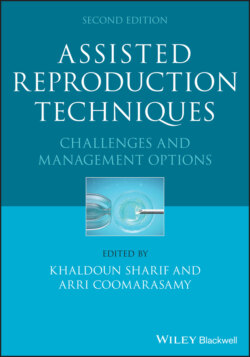Читать книгу Assisted Reproduction Techniques - Группа авторов - Страница 22
Endometrial cancer
ОглавлениеEndometrial cancer is the most common malignancy of the lower female genital tract in developed countries [40]. It is a hormone‐dependent malignancy in the majority of cases. PCOS and unexplained infertility have also been linked directly to endometrial cancer [9,41]. The suggested mechanism is that fertility drugs result in prolonged exposure of the endometrium to high levels of estrogen, which raises the risk of endometrial cancer by increasing mitotic activity and DNA replication errors [42]. However, fertility drugs induce ovulatory cycles and pregnancies, which results in progesterone production, exerting potentially protective effects and a reduction in endometrial cancer risk. A meta‐analysis of nine cohort studies concluded that IVF does not seem to be associated with increased risk of cervical cancer or endometrial cancer when the confounding effect of infertility was neutralized [39]. A 2017 Cochrane review of 19 studies (1,937,880 participants) concluded that women who need treatment with clomiphene citrate should be aware that they are at increased risk of endometrial cancer. The risk is largely due to underlying conditions causing subfertility, and it is not possible to assess the additional effect of clomiphene citrate, based on available data [43]. The review found the quality of evidence was very low.
Overall, there is no evidence to support that fertility drugs are associated with an increased risk of endometrial cancer.
